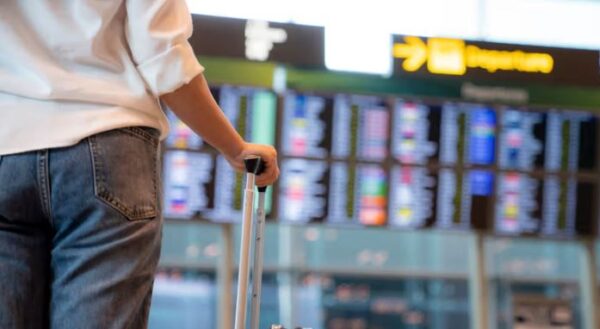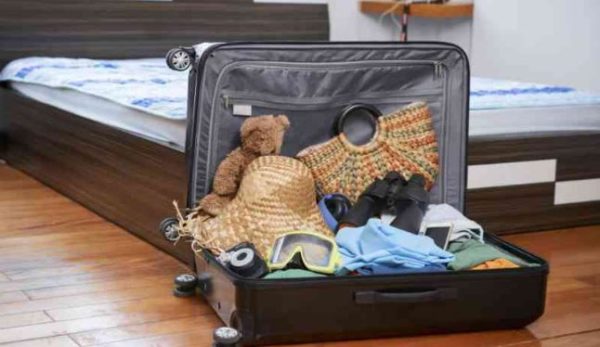Lifestyle
5 ways business travellers can navigate flight delays and cancellations

Recently, Cape Town International Airport experienced flight delays due to a power outage resulting in flights being diverted and passengers being stuck in limbo.
It’s becoming apparent that even when taking to the sky, travellers should leave room for such mishaps.
For business travellers, flight delays and cancellations are stressful at the best of times but even more so if it means missing important meetings, events or networking opportunities.
According to Kenny Totten, business travel expert and COO at corporate travel management platform, AllFly, there’s nothing worse than turning up to the airport for a highly-anticipated meeting with a big client or industry event, only for the situation to go belly up before it’s even begun because of a delay or cancellation.
“While these disruptions are unavoidable, the best thing to do is make sure you know how to handle them so in the event they do arise, you know exactly how to deal with them and can act quickly to minimise the impact on your colleagues and clients,” said Totten.
He shared some tips on how business travellers can navigate flight delays and cancellations.
1. Download the airline app
According to Totten, in order to prevent stress and save time, it’s best to download your airline app to avoid having to frantically refresh Google for flight updates.
“Before any trip, download the airline app and enable notifications. The app is often the quickest way to receive updates about flight disruptions. By learning about delays and cancellations early, you can address them promptly, avoiding the rush of others at the airport,” said the expert.
He added that notifications often came with suggestions for handling disruptions, such as claiming a refund, vouchers, or reimbursement for alternative transportation or inconvenience and this can help you save lots of time by walking you through how to deal with the situation as fast as possible.
2. Notify team members
Totten highlighted that during the process, it’s easy to get caught up in sorting alternative modes of transportation or refunds and, while these should be priorities, it’s equally important to update your team and peers as soon as possible.
“If you’re scheduled to meet colleagues or industry peers at your destination, inform them of your delay and provide an updated ETA to prevent them from waiting unnecessarily.
“Additionally, contact your company’s travel planners to see what assistance they can offer,” he said.
The business travel expert also said that if the disruption affects your attendance at an event or meeting, notify the organisers immediately so they can adjust accordingly.
“If you are now going to miss an important discussion or meeting, ask a colleague or industry peer to take notes so you don’t miss any crucial information,” he said.
3. Check alternative transport options
Totten also advised that if your flight gets cancelled at the airport, resist the urge to join the queue of fellow confused travellers.
“Instead, quickly check what alternative flight options are available. Every other person who was supposed to be on that flight will want on the next available one, like you.
“This means that when the airport staff ask you to join a queue to get booked onto the next flight, the seats will get snapped up like wildfire and the flight will likely sell out,” said the business travel expert.
He said that to secure a seat on the next flight and avoid being left in the lurch, immediately start looking up alternative flight options yourself.
“This will allow you to reach your destination as close to your original arrival time as possible, minimising the disruption to your plans. Begin by looking for flights with the same provider, as most airlines will only cover replacement flights that are booked through them, unless their routes are sold out.
“If this is the case, speak to airport staff to confirm they will reimburse you for a flight booked through a different airline before purchasing,” he said.
4. Keep any receipts
The business travel expert also highlighted that when it comes to getting refunds and reimbursements, you’re going to need proof.
“If your flight is cancelled and you have to make alternative arrangements, such as purchasing meals, staying over at a nearby hotel, or buying an alternative flight, keep every receipt. You often need to show these when claiming back money on behalf of your company,” he said.
Totten also noted that you may even want to make a quick note about why you made each purchase as this will make the reimbursement process smoother and ensure you get back all the extra money you had to spend.
5. Claim compensation
And finally, the business travel expert said that after gathering your receipts, it’s time to claim compensation.
He said that to get compensation for disruptions to business trips, keep hold of your boarding pass, booking confirmation, and any documentation that relates to the cancellation or delay. Then, follow the steps that are given through the airline app.
“The process can be fiddly and stressful. Sometimes it is taken care of by your company, but the easiest scenario for this stressful situation is when your company works with an online booking platform that covers this as part of our service, like us.
“We can handle it all for you, so you don’t have to worry about the logistics, just keep your team and colleagues informed,” said Totten.










